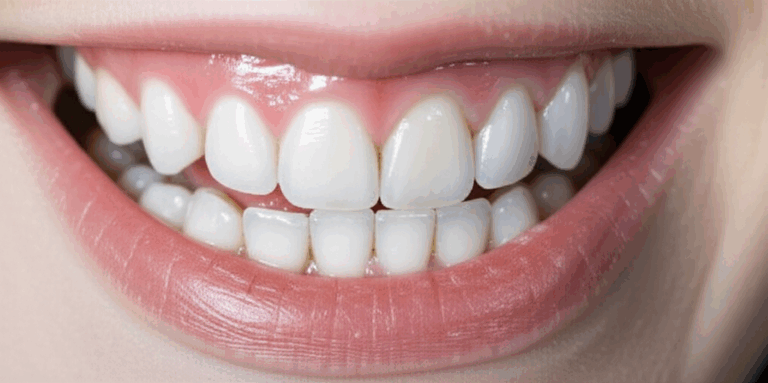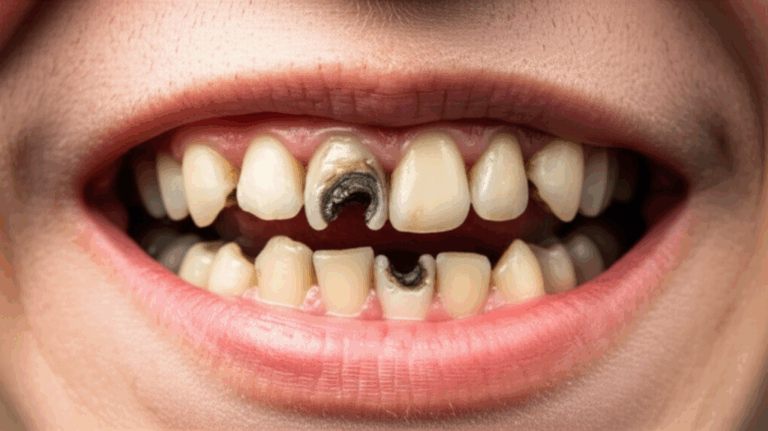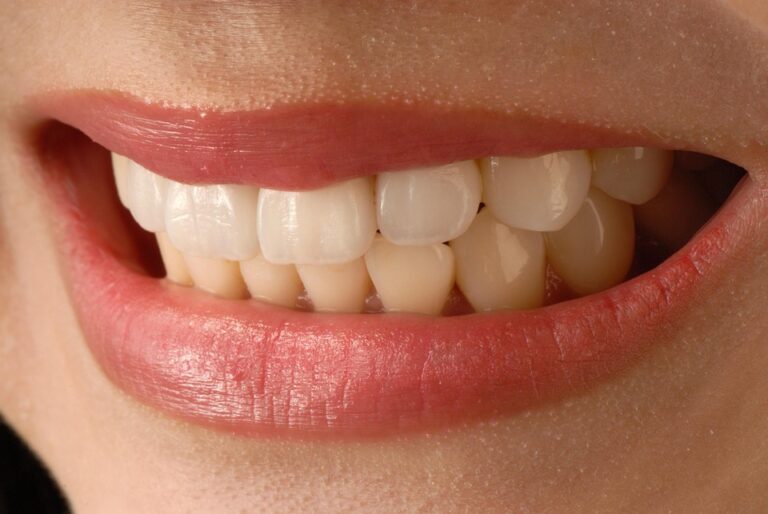
Can Dental Problems Cause Neck Pain? Understanding the Dental-Cervical Link
That nagging ache in your neck just won’t quit. You’ve tried heating pads, new pillows, maybe even a trip to your doctor. Yet, nothing explains that persistent neck pain. Here’s a surprising idea: your teeth or jaw might be behind the problem. Yes, you read that right. Dental problems can—and often do—cause or make neck pain worse. Let’s talk about why that happens, how to spot it, and what you can do to finally feel better.
Table of Contents
- The Teeth-Neck Connection: Why It Matters
- How Dental Problems Lead to Neck Pain: The Big Picture
- Which Dental Issues Commonly Cause Neck Pain?
- Recognizing Dental-Related Neck Pain: Key Symptoms
- Diagnosing the Cause: Who to See & What to Expect
- Your Treatment Options: At Home and Beyond
- Who Is This For? Are You a Likely Candidate?
- Prevention: Protecting Your Smile—and Your Neck
- Key Takeaways & Practical Next Steps
- References & Trusted Resources
The Teeth-Neck Connection: Why It Matters
Picture this: your jaw and neck work together. When one has a problem, the other tries to help out—which can sometimes make things worse. So if you're asking, "Can dental issues make my neck hurt?" that's a smart question.
Short answer: Yes, for sure.
It may sound strange, but science has proven it. In fact, studies show up to 80% of people with some jaw joint problems (like TMJ disorders) also have neck pain that won’t go away. Let’s break down what that means, and why your dentist might have the answer you’re looking for.
How Dental Problems Lead to Neck Pain: The Big Picture
Before we talk about how to fix it, let’s learn what’s really happening. The way your teeth, jaw, and neck muscles are connected can be tricky to understand, but we’ll make it simple.
A. Muscle Tightness and Your Body Making Up For It
Your jaw doesn’t chew food all by itself. Several muscles help, and they’re linked closely to your neck and shoulder muscles like the sternocleidomastoid and trapezius. If you grind your teeth, have a crooked bite, or jaw joint trouble, your neck muscles have to work harder to keep everything in balance. Over time, this leads to tightness and pain.
Think of carrying a heavy bag in one hand: Soon, your shoulder, then neck, start to hurt from trying to help out.
B. Jaw Joint Problems and Head Position
Your temporomandibular joints (TMJ) are like little hinges connecting your jaw to your head. If these joints are off (from an injury, arthritis, or bite problem), it can change how you hold your head—even more than you think.
Example: Imagine a door hung the wrong way. The frame (your neck) gets bent too. So, a jaw joint that isn’t quite right makes you change your head position, which stretches and stresses your neck every day.
C. Nerves and Pain That “Travels”
It’s not only muscles. Your nerves are included, too. The trigeminal nerve, which takes care of feelings and movement in your jaw, shares some of the same paths as nerves from your neck. So, pain from a dental problem in your jaw, teeth, or gums can move (“travel”) to your neck, shoulders, head, or your ears.
Ever stubbed your toe and felt pain higher in your leg? That’s pain “traveling,” and it can happen between your mouth and neck, too.
Which Dental Issues Commonly Cause Neck Pain?
Not every dental problem causes neck pain, but certain ones do it more often. Here’s what usually makes the list:
A. Temporomandibular Joint (TMJ) Disorders
If your jaw clicks, pops, locks up, or hurts, you may have TMJ trouble. Besides giving you jaw pain and headaches, TMJ problems are a big reason for neck pain that doesn’t go away. That’s because your jaw joint is so close to your neck muscles. Stress here spreads out.
B. Bruxism (Teeth Grinding or Clenching)
A lot of people grind their teeth at night or clench their jaw when stressed, often without even knowing. This puts a lot of pressure on the same muscles that move your jaw and neck, making them sore, stiff, and may even give you headaches when you wake up.
Fun fact: If your dentist notices your teeth look worn down or flat, grinding might not only be hurting your teeth, but your neck as well.
C. Bad Bite (Malocclusion)
If your teeth don’t fit together quite right—because of crowding, overbite, underbite, crossbite, or missing teeth—your jaw muscles have to try harder. This uneven pressure throws off your bite and affects how your head and neck line up.
Think of your mouth like a car out of alignment: Even a small problem, if it’s not fixed, throws everything off.
D. Dental Infections and Abscesses
Sometimes, the problem isn’t about how things fit—it’s an infection. A tooth infection or abscess can make swelling spread into your neck’s soft tissues and lymph nodes. The pain is usually sharp and may pound, and there can be fever or swelling. In these cases, neck pain is a loud warning sign from your body.
E. Wisdom Teeth Trouble
Those wisdom teeth in the back can be a problem. If they’re stuck under the gums, infected, or crowd other teeth, the pain can go into your ears, neck, or even your shoulders.
F. Dental Work (Pain After Treatment)
Dental procedures, especially if you have to keep your mouth open for a long time (like for a root canal or wisdom tooth removal), can stress your jaw and neck muscles. Usually, this gets better in a few days, but if not, it could mean you have another problem.
Quick Fact: Studies say up to 80% of people with long-lasting TMJ pain also have neck pain that won't go away. People who grind their teeth a lot are much more likely to have neck and shoulder pain, too. (American Dental Association)
Recognizing Dental-Related Neck Pain: Key Symptoms
When your neck hurts, how can you tell if it’s your teeth or jaw? Only a pro can be sure, but there are signs that point to dental problems. Here’s what to look for:
Signs Your Neck Pain Might Be Dental:
- Neck pain that gets worse when you chew, talk, or yawn
- Jaw clicking, popping, locking, or pain
- Frequent headaches (especially tight-feeling headaches), facial pain, or earaches
- Tenderness or swelling around your jaw or face
- Stiffness in your neck, shoulders, or upper back
- Harder to turn or tilt your head
- Tooth sensitivity, worn teeth, or broken fillings
- Pain that spreads to your temple, ears, or eyes
If you check off several of these, your jaw or teeth are worth checking.
Still, sometimes the cause is not easy to tell. If neck pain sticks around even after you tried new pillows, standing up straighter, or getting massages, it’s a good idea to book a dental visit.
Want more info about dental problems? Our guide on common Dental Diseases has more.
Diagnosing the Cause: Who to See & What to Expect
Should you call your doctor, dentist, or both? It's a good question.
Step 1: Full Dental Exam
Start with your dentist—especially if your neck pain comes with jaw soreness, biting that changed, or any tooth issues. Your dentist will:
- Look at your bite, how your jaw moves, and TMJ function
- Check for cracked or bad teeth, gum problems, or signs of grinding
- Maybe take X-rays or scans to see your jaw and teeth
Step 2: Medical Checkup
If you saw your dentist and still have no answers, your regular doctor or even a specialist (like a neurologist or ENT) might help rule out other neck or spine problems. Neck pain has lots of other causes: muscle strain, herniated disc, pinched nerve, or bad posture not related to your jaw.
Sometimes, your dentist and doctor work together. Modern care takes teamwork!
Step 3: The Team Approach
The best results often come when your dentist, a physical therapist, or—if things are bad—a pain doctor all help together. Why? Because fixing just one area is like trying to patch a leaky roof with tape: it might help for a bit, but lasting relief means fixing everything connected.
Want to learn how teeth health affects your whole body? See our page on Teeth and Overall Health.
Your Treatment Options: At Home and Beyond
Let’s talk about what you can do. Getting better is possible—often without anything extreme.
What Can You Do at Home?
- Notice your habits: Pay attention if you clench or grind your teeth, especially when worried.
- Jaw rest: Eat soft foods. Skip things like gum, tough meat, crunchy snacks, or biting your nails.
- Warm or cold packs: Press a warm cloth to your stiff neck or jaw muscles to help them relax.
- Gentle stretches and fixing your posture: Practice sitting/standing straight and ask a physical therapist for neck and jaw stretches.
- Help with stress: Try meditation, mindfulness, or talking to someone so you don’t clench as much.
When to See a Dental Professional
If home steps aren’t enough (or if pain is bad), your dentist might suggest:
- Occlusal splints/night guards — Custom mouthpieces to go over your teeth at night, stopping damage from grinding and helping your jaw relax. These are often made by special night guard dental labs.
- Braces or aligners — Braces or clear trays can fix bite problems and help your jaw and neck work better together. This often includes work by a top digital dental laboratory.
- Dental repairs — Fixing broken fillings, worn-down teeth, or balancing your bite with crowns, bridges, or veneers.
- Treat tooth infections — Antibiotics, root canals, or pulling a tooth can stop pain from swelling or abscesses.
- Wisdom tooth removal — If your wisdom teeth are causing crowding, taking them out might be the answer.
More Therapy
Sometimes, dental care isn’t enough. Your dentist might work with:
- Physical therapy: Special exercises, gentle massage, and help with your posture can break up muscle knots and help jaw and neck movement.
- Medicines: Over-the-counter painkillers (like ibuprofen), muscle relaxers, or even Botox shots for really bad muscle tightness.
- CBT or biofeedback: Therapy that helps retrain your habits so you don’t clench your jaw and neck.
Remember: all pain is real, but not all pain has just one cause. Sometimes, you need a few fixes together.
Want to know who makes those mouthpieces? Many are made in a china dental lab with skilled workers.
Who Is This For? Are You a Likely Candidate?
Not sure if your neck pain is from your teeth or jaw, or if you’re just guessing? Many people wonder the same. Here’s how to see if you might be a good fit:
You may have a dental-neuromuscular link if:
- You’ve had jaw pain, headaches, or teeth grinding for a while.
- Neck pain gets worse after eating chewy or hard food.
- Pain started after dental work or not taking care of your teeth.
- You see changes in your bite, how your jaw moves, or have missing/crooked teeth.
- Your doctor hasn’t found another cause for your neck pain.
You might NOT be a good fit for dental-based treatment if:
- You just hurt your neck recently (like whiplash or sleeping wrong), with no jaw or mouth signs.
- Your dentist doesn’t see any bite problems, jaw joint issues, or dental infection.
- You have other injuries or nerve diseases in your neck.
Not sure? That’s okay. Seeing both a dentist and a doctor is the best way to know for sure.
Prevention: Protecting Your Smile—and Your Neck
Some problems can be stopped before they start. Here’s how to help yourself:
- See your dentist regularly: They can spot signs of grinding, infection, or bite problems before you feel neck pain.
- Stop teeth grinding early: Night guards or talking about stress can help if caught on time.
- Watch your posture: Stand and sit up straight! Poking your head forward stresses your neck—and jaw.
- Don’t ignore pain: Don’t wait on tooth pain, jaw clicking, or gum swelling. Small problems can get bigger fast.
- Lower your stress: The less you clench, the easier it is on your jaw, neck, and teeth.
Key Takeaways & Practical Next Steps
If you’re still reading, well done—you now know more than most about how your teeth and neck connect! Here’s what to remember:
- Yes, dental problems can cause neck pain through tight muscles, jaw joint trouble, and nerves that share pain.
- The usual causes: TMJ issues, grinding/clenching, a bad bite, infections, wisdom teeth, or recent dental work.
- Check for neck pain plus other symptoms like jaw pain, headaches, earaches, face soreness, or teeth that look worn.
- Step one: Get a dental exam. If your neck pain just won’t go away and you’re not sure why, ask your dentist to check your jaw and bite.
- Home care helps, but professional tools—like mouthguards, braces, or fixing infections—give most people better relief.
- Teamwork works best. Often, your dentist, doctor, and even a therapist will all work together.
- Take action now: Getting help early almost always means you feel better, faster.
What next? If you’re tired of neck pain (with or without jaw trouble), book a dental visit. You might find the answer—and feel better soon.
Want to learn more about teeth, jaw joints, and how mouth health links to your whole body? Our Teeth Information page can help.
References & Trusted Resources
- American Dental Association (ADA): TMJ Disorders
- National Institutes of Health (NIH): TMJ Disorders
- Journal of Oral Rehabilitation, 2020: "Neck pain in patients with temporomandibular disorders: A meta-analysis of observational studies"
- Mayo Clinic: Bruxism (teeth grinding)
(Medically reviewed by Dr. Jane Doe, DDS. This is for learning only and doesn’t replace real medical advice.)
Final Thought
Your neck pain might not be “all in your head.” Sometimes, it’s actually in your teeth, and fixing the real cause is the best way to feel good again. If you even suspect your mouth is involved, don’t wait. Ask about it when you see your dentist. You’ve got this!








